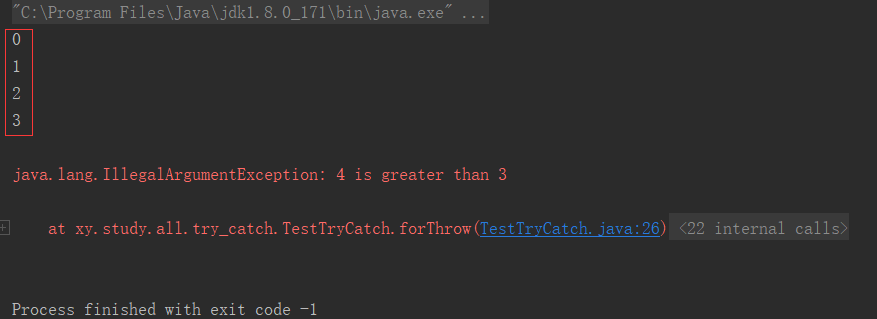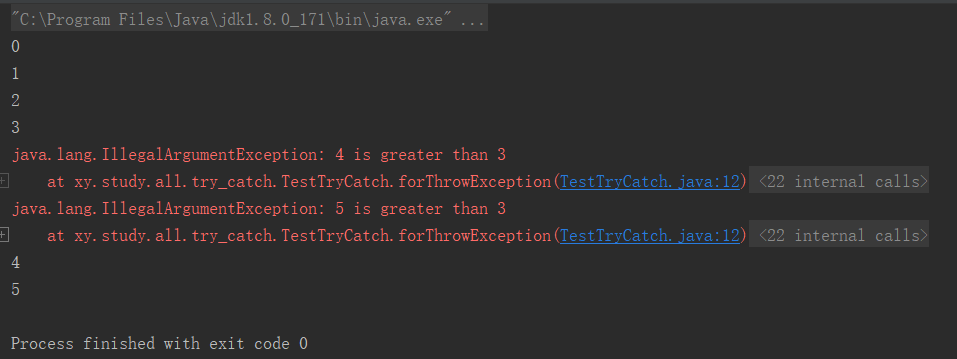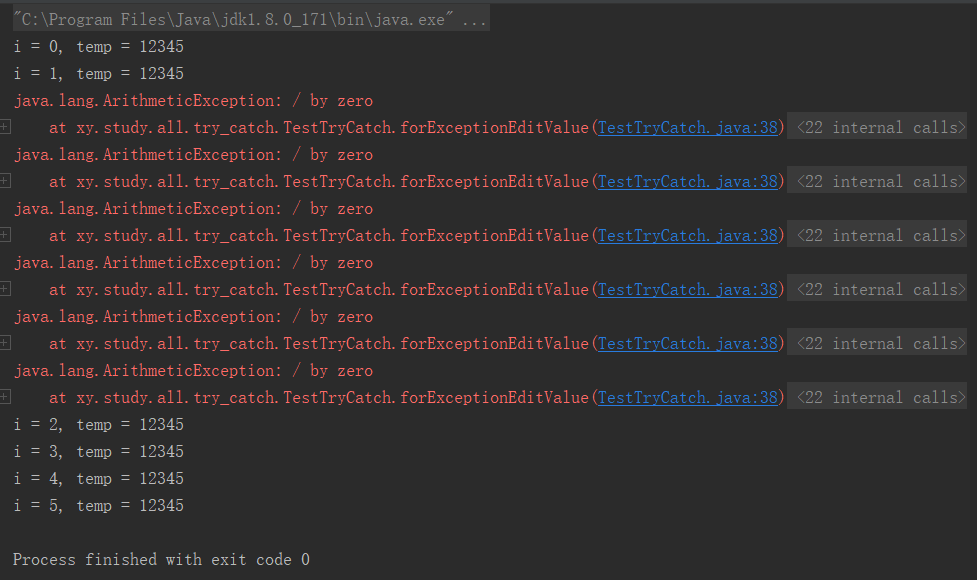异常处理
当for循环遇上try-catch
首先是不建议在循环体内部进行try-catch操作,效率会非常低,这里仅仅是测试这种情况,具体的业务场景建议还是不要在循环里try-catch
@Test
public void forThrow(){
final int size = 6;
for (int i=0; i<size; i++){
if(i > 3){
throw new IllegalArgumentException(i+" is greater than 3");
}
System.out.println(i);
}
}
上面执行了一个for循环,当i大于5就抛出异常,这里由于没有捕获异常,程序直接终止。 下面来看看捕获异常后的结果
@Test
public void forThrowException(){
final int size = 6;
for (int i=0; i<size; i++){
try {
if(i > 3){
throw new IllegalArgumentException(i+" is greater than 3");
}
}catch (IllegalArgumentException e){
e.printStackTrace();
}
System.out.println(i);
}
}
由于内部捕获了异常,程序打印出堆栈,程序没有终止,直到正常运行结束。
进行数据运算时,如果抛出了异常,数据的值会不会被改变呢?
@Test
public void forExceptionEditValue(){
final int size = 6;
int temp = 12345;
for (int i=0; i<size; i++){
try {
temp = i / 0;
}catch (ArithmeticException e){
e.printStackTrace();
}
System.out.println("i = "+i+", temp = "+temp);
}
}
可以看到,当想要改变temp的值的时候,由于数据运算抛出了异常,temp的值并没有改变!






